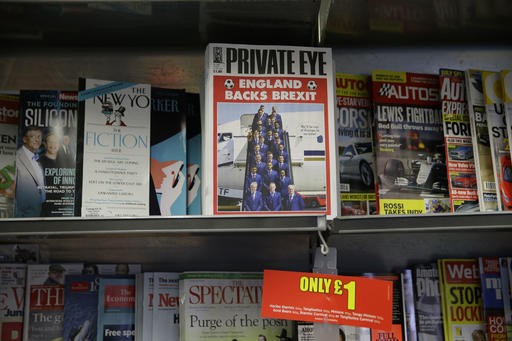Popular Reads
Top Results
Can't find what you're looking for?
View all search resultsPopular Reads
Top Results
Can't find what you're looking for?
View all search resultsBrexit: What would this mean for the youth?
Change text size
Gift Premium Articles
to Anyone
I
f you’re the kind of person who reads news articles during your leisure time, you’re probably up to date on the hoopla that is “Brexit”, or the UK’s referendum pertaining to membership of the European Union (EU).
Brexit involves plenty of changes in the country’s policies toward trade and many other aspects as well. The implications and scenarios have all been worked out, but what impact would Brexit have on the youth in the UK, UK citizens currently residing outside, non-UK European Citizens, or internationals looking for opportunities in the UK?
Before diving straight into the implications, let’s get to know a little more about the EU. It is what’s known as a single market, which means they have an agreement between countries to trade freely among themselves and adopt common external barriers; along with common policies on product regulation, and the free movement of goods, services, capital and labor. They also have a common currency (followed by 19 out of 28 EU countries) and a central bank. Arising post-World War II, the EU decided to adopt commerce rather than combat as its core value for the countries.
Heavily criticized by John Oliver, "Brexit: The Movie" put across Britain’s concerns to the public about the notorious EU regulations.
(Read also: Brexit not significant threat to Indonesia: BI)
Along with that, the main reason for Brexit would be the overflowing influx of immigrants and refugees, and the belief that the economic benefits of leaving would outweigh the hefty costs of membership. This includes the financial contribution Britain gives to the EU to provide free National Health Services (NHS) for its citizens all through Europe.
Despite clear reasons for Brexit, many have speculated the underlying racism within it all. In fact, Rozanne Duncan, an ex-member of the UK Independence Party (UKIP) was quoted as saying, “The only people I do have problems with are negroes. And I don’t know why.”
Additionally, a former UK Prime Minister pledged to endorse “British jobs for British workers” in the past.
What does this mean for EU citizens seeking jobs in the UK, then? Most obviously, encountering such discrimination is not ideal at all. The fact of the matter is that it will be much, much more troublesome to find employment in UK-based firms. One of the main causes of this is their inward-oriented employment strategies due to the rise in costs stemming from the cuts in benefits given to the UK by the EU.
One such benefit is the subsidies given to the UK in the agricultural sector. Despite this, the UK still intends to continue funding agriculture, even though this would add another cost to the government, which could have easily been used on more important projects.
(Read also: Voters decide in Britain's historic EU referendum)
Some of you international students might be considering studying and/or settling into the UK. Well, a fun fact here is that about 20 percent of the staff in prestigious universities there are non-UK European Union citizens. Furthermore, the UK is the highest recipient of funding from the EU for research, with 78 universities conducting about 1,000 projects. With the funding cut off as well as the increased formalities regarding non-British staff, there is bound to be a colossal uncertainty over the quality of education.
On the topic of uncertainties, Brexit will make things even more complicated for British citizens looking to live outside the UK, especially since they will no longer be covered by the right to work and own property in Europe. To add on to that, free healthcare outside the UK will not be available, as Brexit would mean cutting funding for the NHS in Europe. Unfortunately, this spells trouble to the pockets of British expats.
British citizens will, unfortunately again, gain no benefit from the EU’s regulations such as flat prices for telecommunications services. Undoubtedly, UK-based companies will seek to take advantage of this and form a monopolistic competitive market, rather than a perfectly competitive one. With regards to the EU’s regulations on food and beverages, Brexit raises a few concerns regarding the ambiguity of the the UK’s future policies. The regulations were deemed “wasteful and ineffective” by the UK, but there is still no hard evidence of planning to either improve or deregulate.
According to me, Brexit is an instability-causing ordeal (not just for Britain, but the whole world), and even though the UK has clear reasons for leaving, there would be catastrophic consequences if it happened -- at least initially.
***
---------------
Interested to write for thejakartapost.com? We are looking for information and opinions from experts in a variety of fields or others with appropriate writing skills. The content must be original on the following topics: lifestyle ( beauty, fashion, food ), entertainment, science & technology, health, parenting, social media, and sports. Send your piece to community@jakpost.com.







